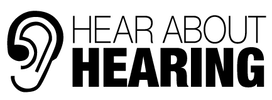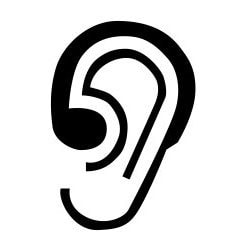This comes four years after Congress passed a bill creating this new category of hearing aids meant to be sold in drugstores for people with perceived mild to moderate hearing loss. For the past four years, the Food and Drug Administration has meticulously talked with every stakeholder in this debate, but after four years of talking, the FDA has yet to set regulations. Meanwhile, the number of warnings about companies trying to jump ahead of the rules and sell cheap amplification devices under the OTC name is only growing. In an effort to push this issue across the finish line, the White House decided to act.
However, as I wrote in an open letter to the White House, this order is sparking even more confusion for those with hearing loss. Perhaps the biggest claim that could put the health of millions of Americans at risk is the idea that OTC devices will help all 48 million people in our nation who are dealing with hearing loss. OTC devices are only meant to be sold to people with perceived mild to moderate hearing loss, and, because hearing loss is so individualized, there’s no guarantee they will even do that. Moreover, the notion that cost is the biggest barrier to treating hearing loss is simply false; it’s the stigma associated with wearing hearing aids. A hearing aid, like any medical device, comes with an investment. On average, an entry-level hearing aid fit by a hearing professional costs around $900. An advanced hearing aid averages about $1,600. What most people don’t understand about the hearing industry is that the price tag also includes clinical evaluations, the hearing aid fitting, care and warranty plans, follow-up consultations and adjustments and ear and hearing aid cleanings, all for the life of that device. This bundle approach ensures that people are getting the most out of these devices since hearing loss is so personalized. Not to mention, 30 states provide Medicaid coverage of hearing aids, and another 23 states require insurance to cover some portion of hearing aid costs. Finally, there is no lack of competition on hearing aids. Our industry consists of more than 90 FDA-approved manufacturers of hearing aids. As the president and CEO of Starkey, the largest American-owned hearing aid manufacturer, I support President Joe Biden’s efforts to expedite the OTC rules as they will help alleviate marketplace confusion for consumers. However, I am concerned with the misleading comments involving cost, competition and access to hearing aids. Separating fact from fiction in this issue is not just about semantics. It’s not about crossing the Ts and dotting the Is. Facts matter. Information matters. And the misinformation clouding this issue is only hurting our ability to work together to ensure all Americans have access to hearing health resources. I strongly believe that hearing health is best achieved through the hearing professional. Every ear is unique, like a fingerprint. The hearing professional is needed to diagnose and treat each individual hearing loss. Opening up access to hearing health through OTC may benefit some. But until the FDA finalizes rules around OTC hearing aids to ensure they are safe and effective, companies trying to make a quick buck by peddling these devices will continue to put Americans’ health at risk. We must put people before profits. If my 27 years in the hearing industry has taught me anything, it’s that the patient must always come first. It drives everything we do at Starkey. The millions of Americans who suffer from hearing loss are expecting us to get this right — we owe it to them to remove the rhetoric, report on the facts and work together so that every American has access to better hearing.
0 Comments
Leave a Reply. |


 RSS Feed
RSS Feed
